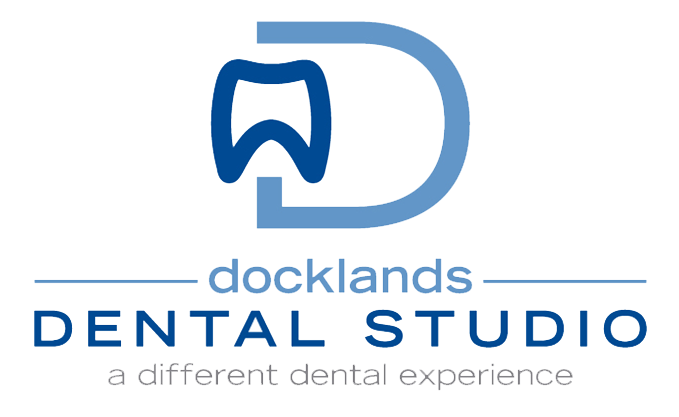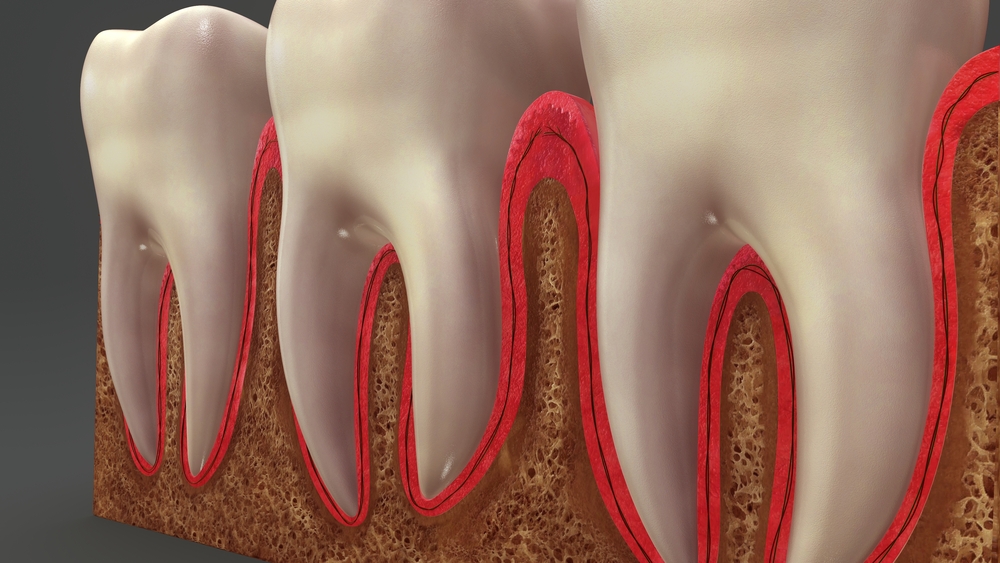When we think of a healthy smile, bright white teeth often come to mind. The health of our teeth is important, but teeth can only remain healthy when they are supported by healthy gum tissue. The dental team of Docklands Dental Studio encourages all of our patients in Port Melbourne, Southbank, and Melbourne to maintain gum health and to prevent gum disease through good oral hygiene habits and regular visits to our dental practice.
Severe periodontal disease is a leading cause of tooth loss here and across the globe. Advanced gum disease is the 11th most prevalent disease globally, according to the World Health Organization. Although gum disease is common, it remains a very serious oral health problem. If your gums are tender or prone to bleeding, you may have mild, moderate, or severe gum disease. Our dentists can perform gentle dental cleanings and periodontal treatments to restore oral health.
Docklands Dental Studio is conveniently located in the Victoria Harbour Precinct in Docklands, Melbourne. It is easy to get to us from Southbank via cars (through the city or M1 then Wurundjeri Way) or by foot (20minute walk).
Consequences of Untreated Gum Disease
Gingivitis (Early Gum Disease)
Even mild gum disease symptoms are unattractive. The earliest stage of gum disease is known as gingivitis. The presence of plaque triggers our body’s immune response, which leads to inflammation of the soft tissue and, eventually, damage to the gums.
Common symptoms of gingivitis include swollen, puffy, and red gum tissue near the base of your teeth. The swelling often weakens the surface of the gums, which makes them prone to bleeding when you floss or brush. Swollen gums can obscure the symmetry of your teeth. The swelling is often uneven and can leave your teeth appearing unattractive and smaller than they actually are.
Swollen gums are more prone to damage from brushing, which can lead to irreversible gum tissue recession. If you suffer from gingivitis, you should only brush with a soft-bristle toothbrush to avoid irritating or damaging your gum tissue.
Fortunately, gingivitis is the easiest form of gum disease to treat. By taking proactive steps to improve oral hygiene habits and visiting your dentist twice a year for cleanings, most patients can reduce or eliminate the undesirable symptoms of gum disease.
Because the source of gum disease lies beneath the gum line, patients should consider flossing more often, using a therapeutic mouthwash, and investing in a water flosser. Water flossing can remove debris from between your teeth and under the gumline where bacteria may be prevalent.
Mild and Advanced Periodontitis
Periodontitis is a progressive disease. Left untreated, gingivitis will progress to periodontitis, which can range from moderate to severe. While gingivitis causes unpleasant symptoms, most of those symptoms are reversible. Periodontitis causes irreversible damage to your teeth and supporting structures. This is one reason why this level of gum disease should be taken very seriously. Periodontitis is a leading cause of tooth loss.
Mild periodontitis is characterized by deep pockets of infection below the gumline. The depth of the pockets can help our dentists determine how advanced your periodontitis is. Healthy gum tissue that is free of bacterial infection will have a very shallow pocket, meaning that the gum tissue attaches to the surface of your tooth’s root near the crown. The presence of bacteria can cause soft tissue to pull away from the surface of your tooth roots.
Another symptom of periodontitis is gum recession. The loss of supportive gum tissue is irreversible and places less protected areas of your teeth at risk of developing tooth decay. At this stage, our doctors will need to perform a non-surgical treatment called deep cleaning.
The treatment employs the same scaling technique used in dental cleanings but with the added step of root planing. The additional step smooths the surface of the roots (near the pockets) to allow for the reattachment of soft tissue. Once your gums have reattached to your teeth, it will be more difficult for a bacterial infection to return.
As trapped plaque and bacteria below the gum line cause an immune response, the pockets of infection can reach deeper below the gum line. Advanced periodontitis can lead to significant gum recession and deep pockets of infection. Advanced gum tissue recession can leave teeth appearing long and misshapen.
For anyone who cares about the appearance of their smile, this is one reason why gum disease should be taken seriously. If the pockets of infection are significantly deep, oral surgery may be required to access the deep areas of infection. Patients who have advanced periodontitis are at risk of requiring one or more tooth extractions.
Prevention and Maintenance
Following your initial treatment at our dental practice, you may need to undergo regular dental cleanings every few months until your symptoms completely recede. Members of our dental team will chart your pocket depth. Receding pocket depth is a sign that connective tissues are reattaching.
Preventing the return of gum disease requires more than chair-time at our office. Patients have an active role to play in maintaining their oral health and preventing the return of gum disease. Risk factors for gum disease include tobacco use, infrequent brushing, sugary diets, advanced age, hormonal changes, poor nutrition, and certain diseases.
Having an awareness of your risk factors for gum disease and lowering those risk factors when possible can play a key role in preventing or addressing gum disease. During your exam at our dental practice, one of our doctors will look for signs of gum disease. If you do have symptoms, you will be treated holistically.
Often, minor behavioral changes or additional cleanings are all that is needed to reverse the symptoms of gum disease. By addressing those symptoms early, you can lower your risk of tooth loss and other potential complications.
Schedule Your Periodontal Treatment Today
Most patients who have gum disease are aware that they have the condition. Swollen, sore, and bleedings gums are unpleasant. Conversely, healthy gums are attractive. To schedule your next dental cleaning or periodontal treatment, please call our office to schedule an appointment.

